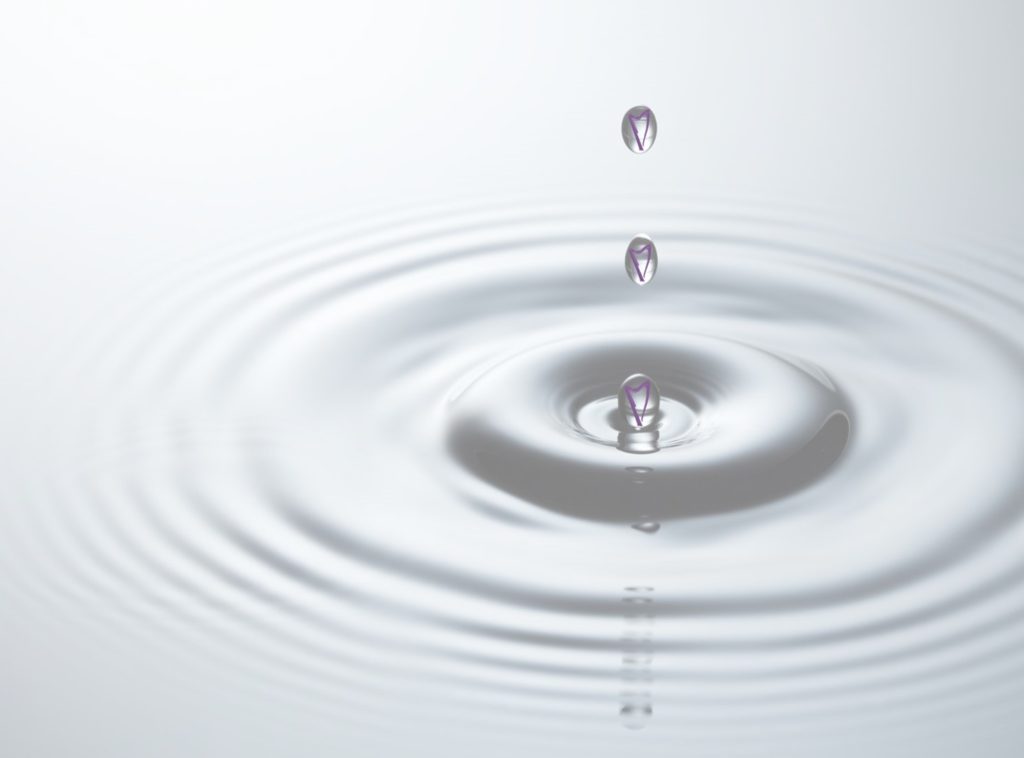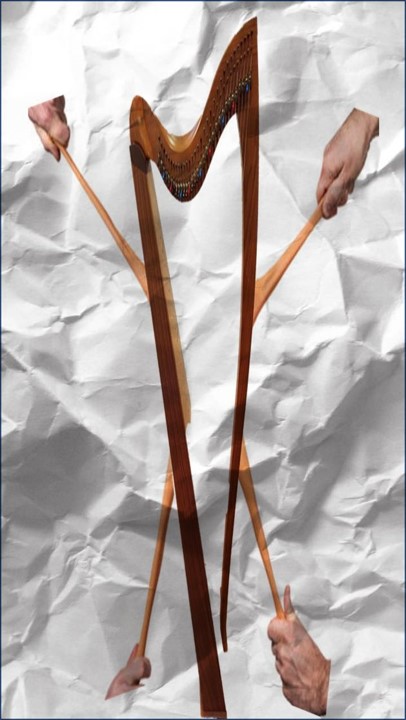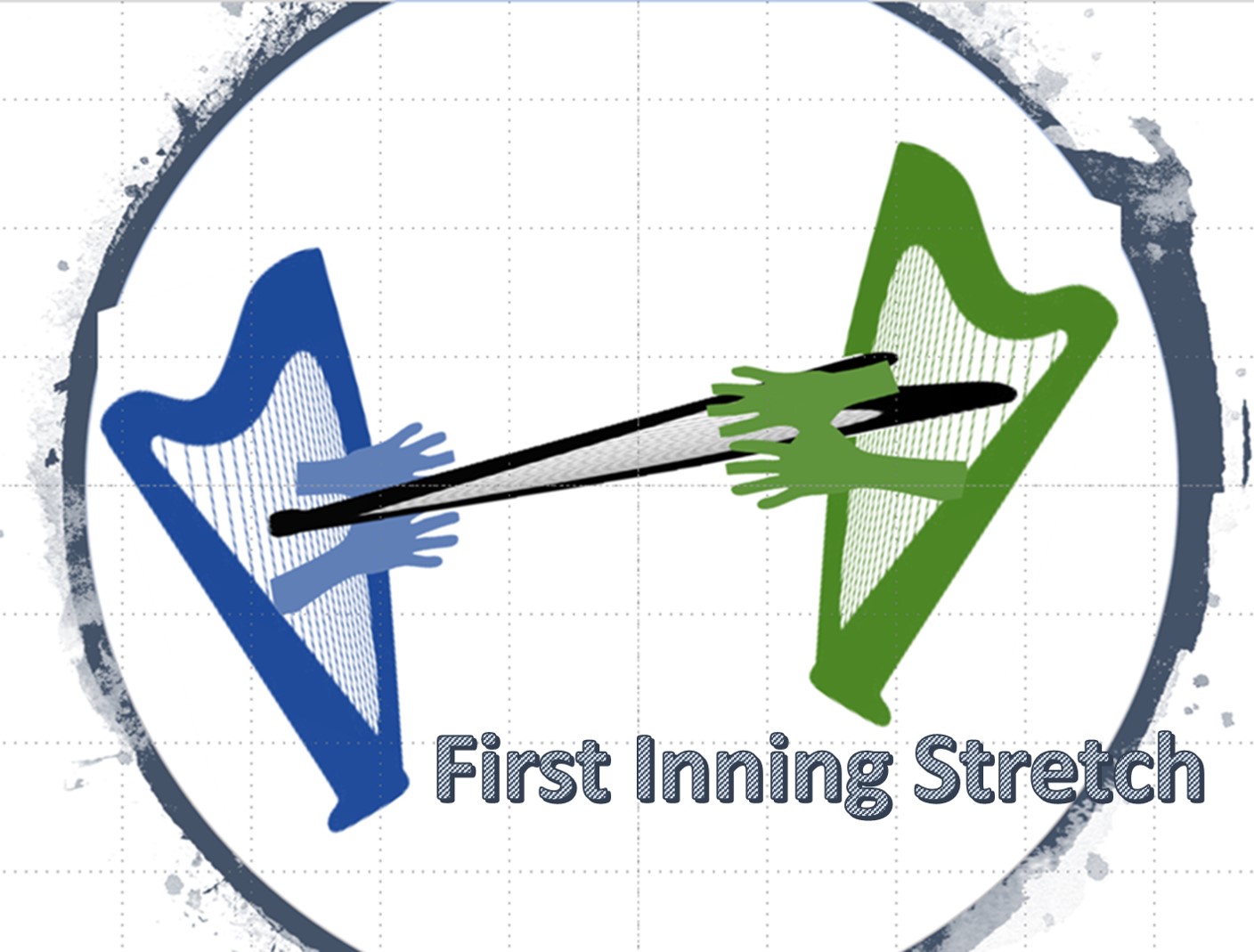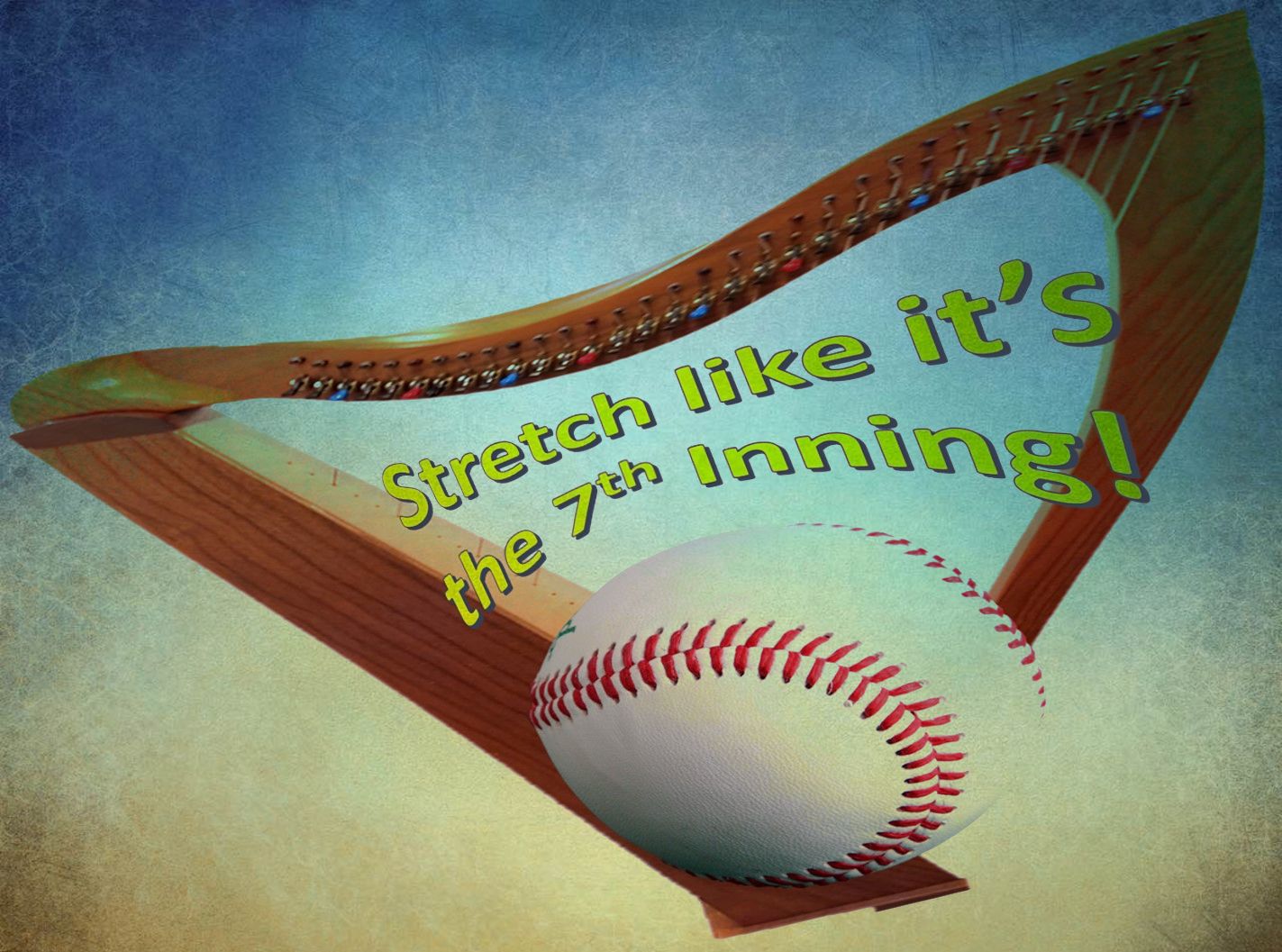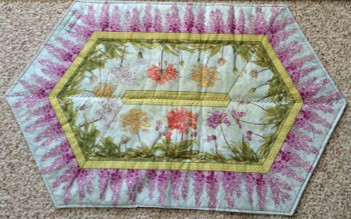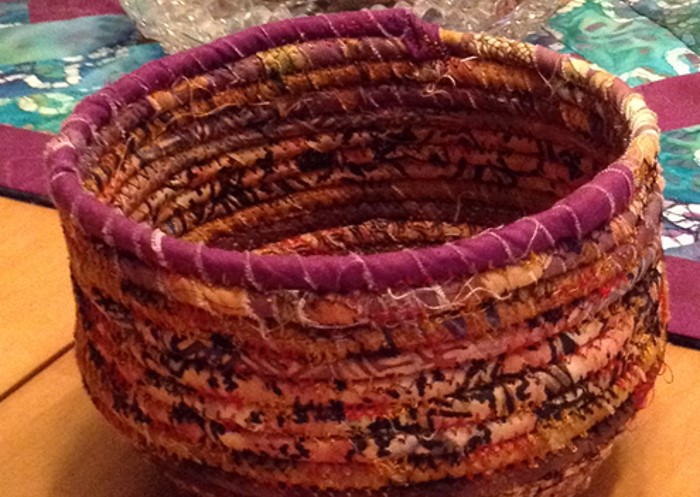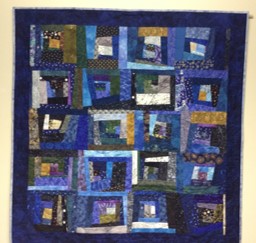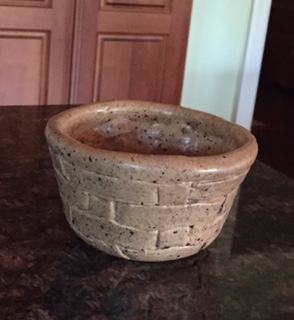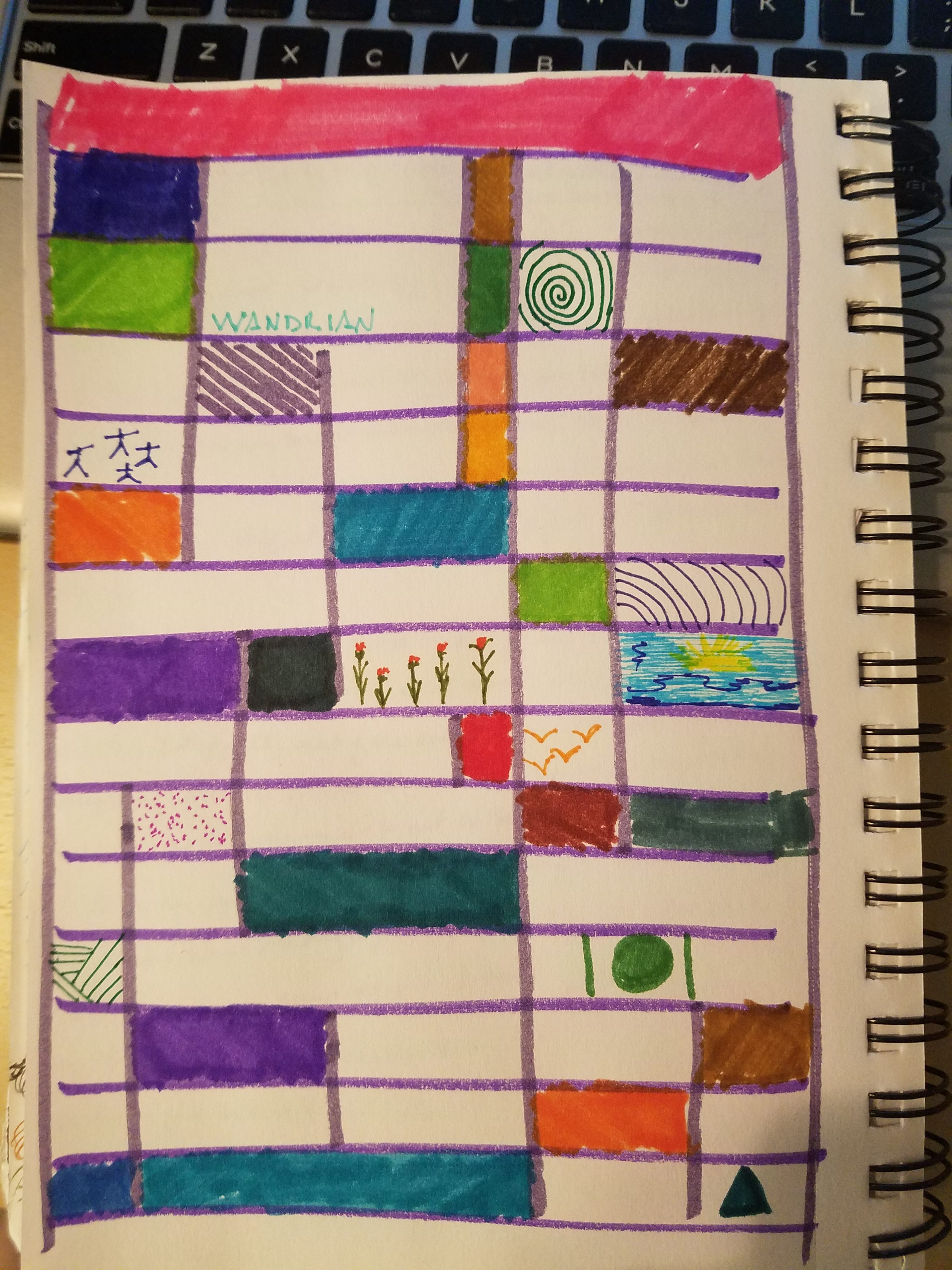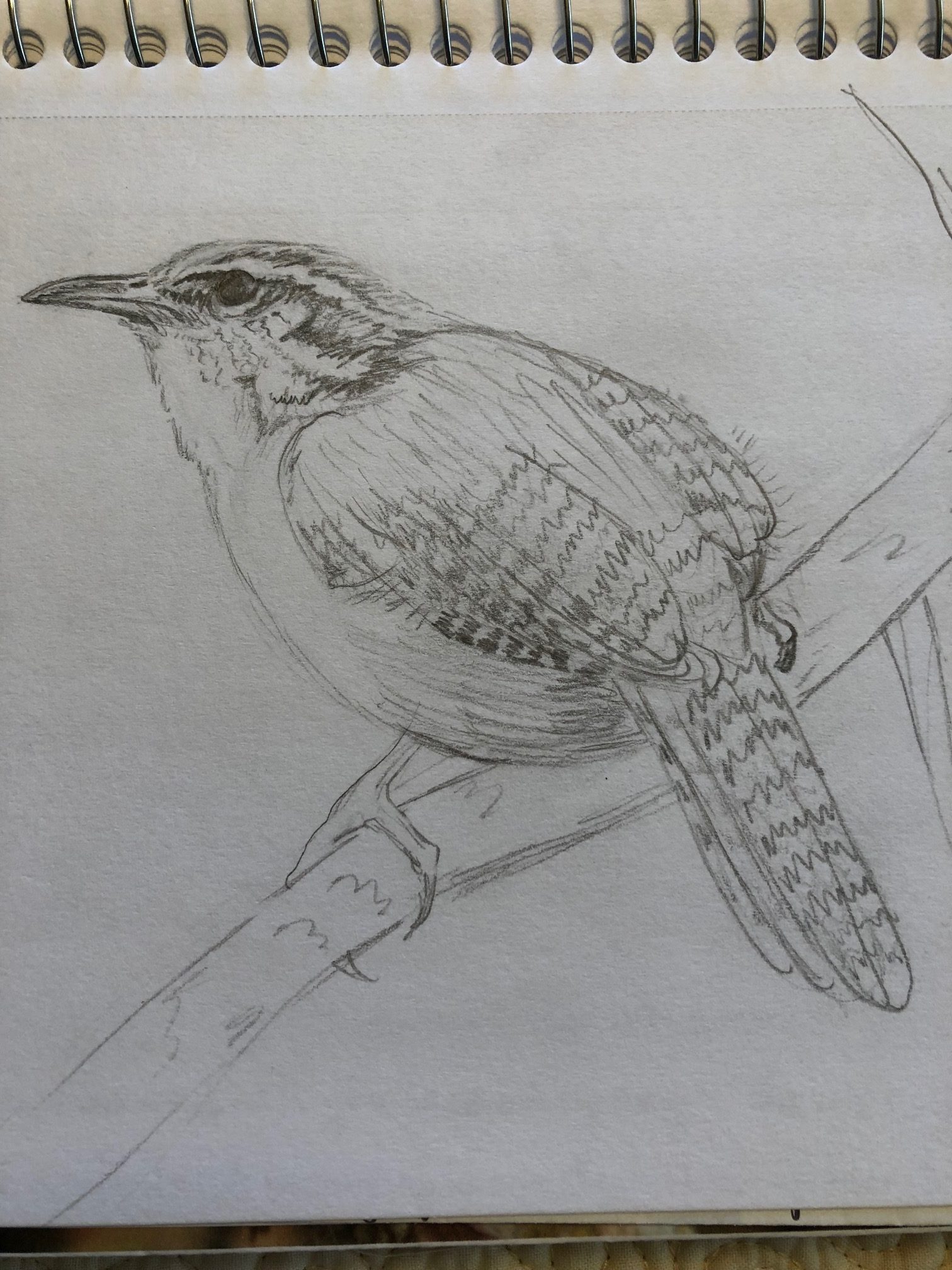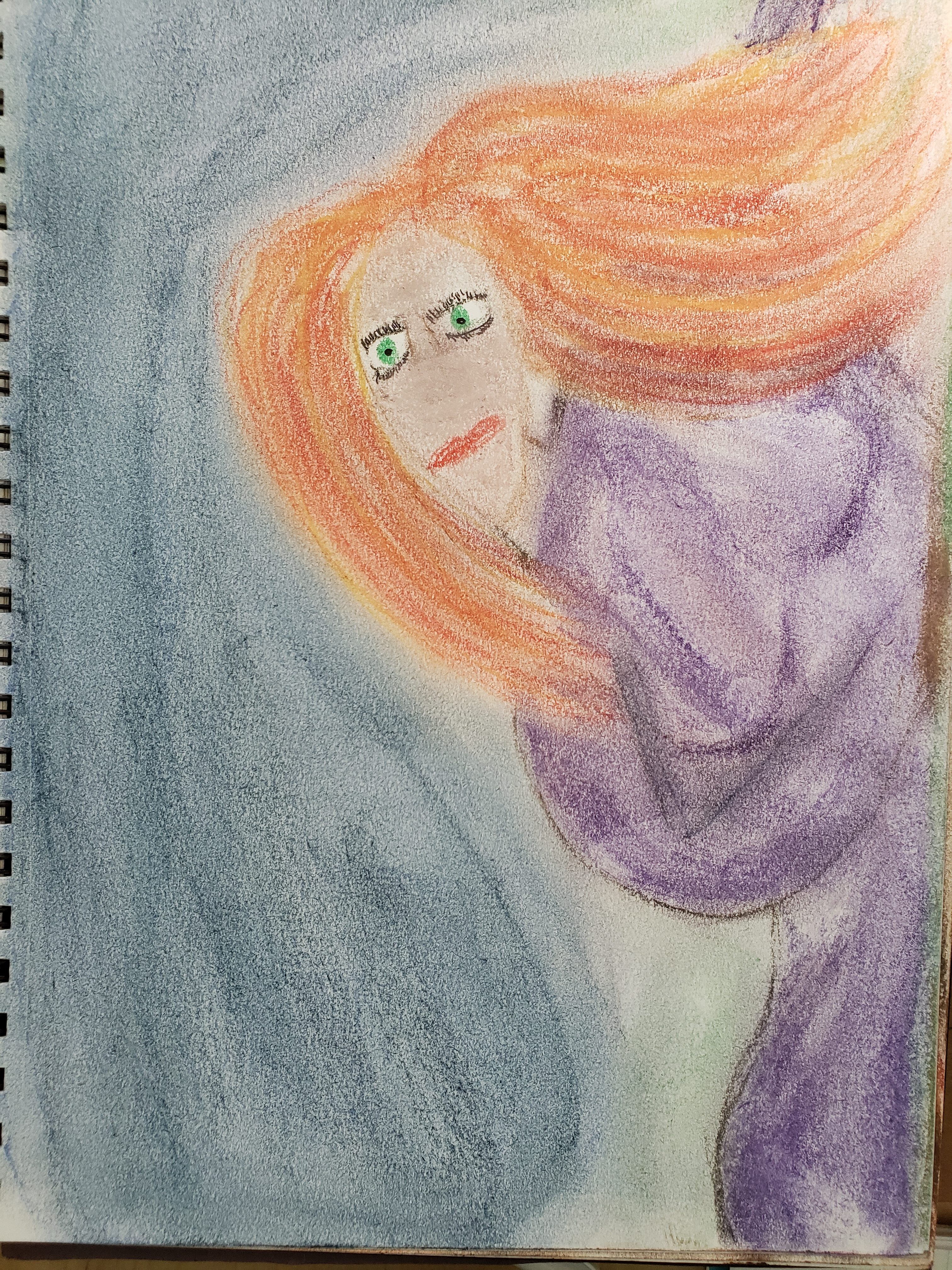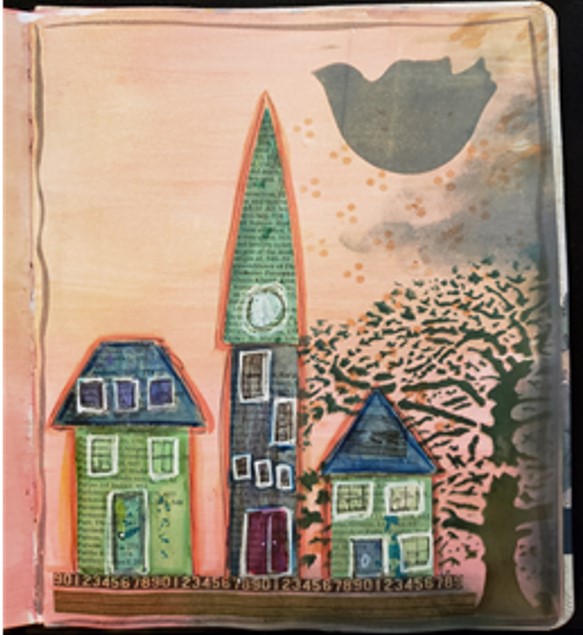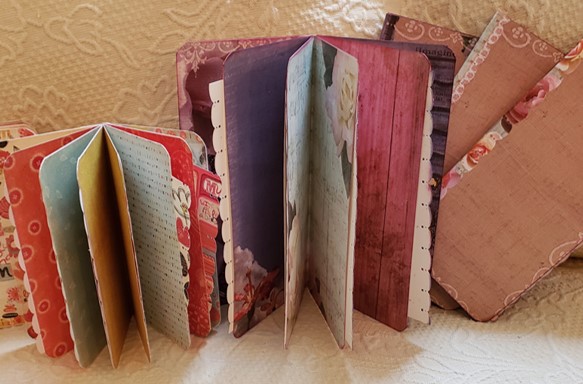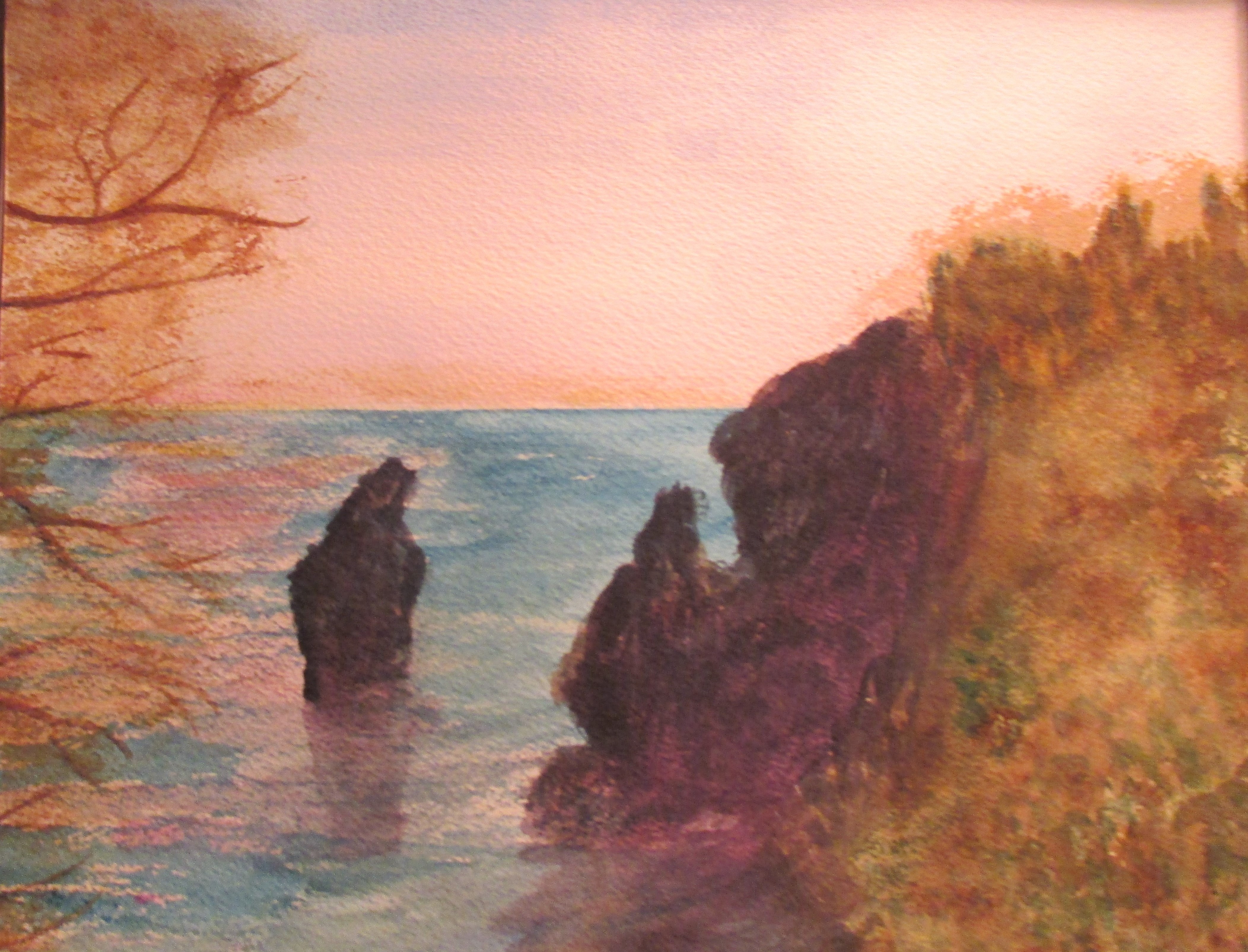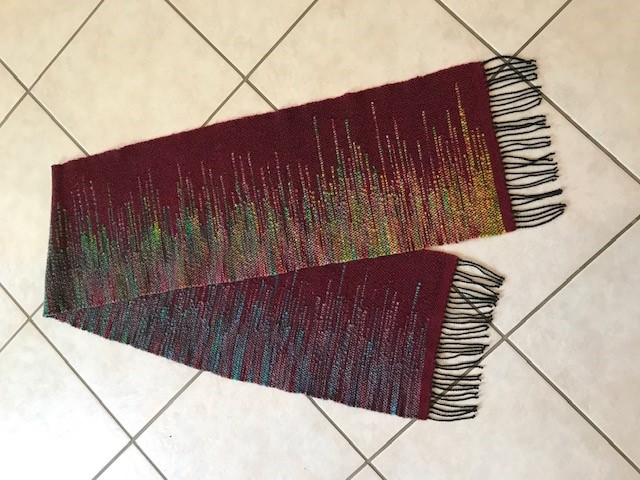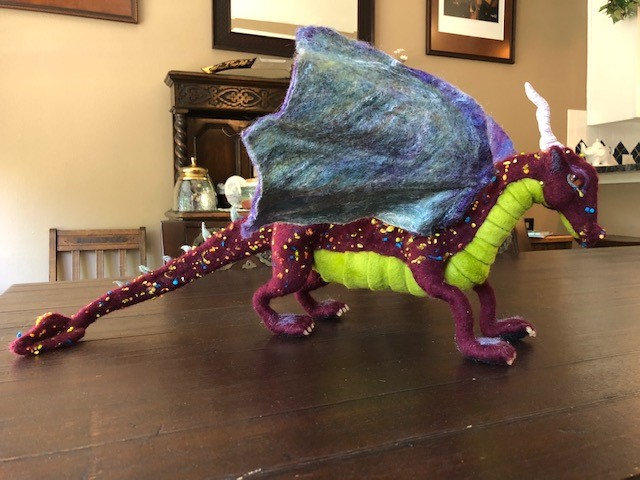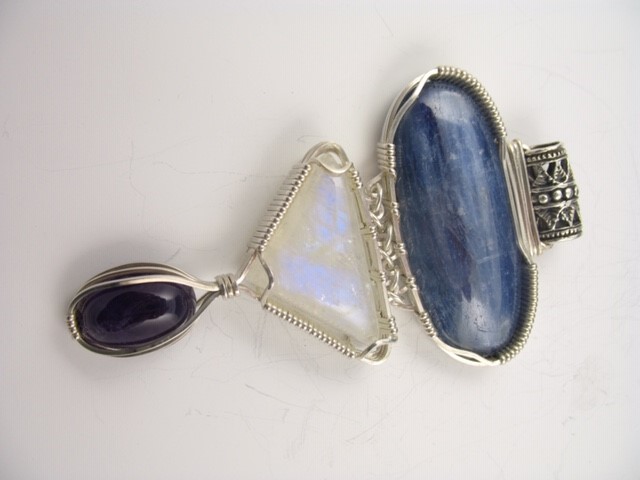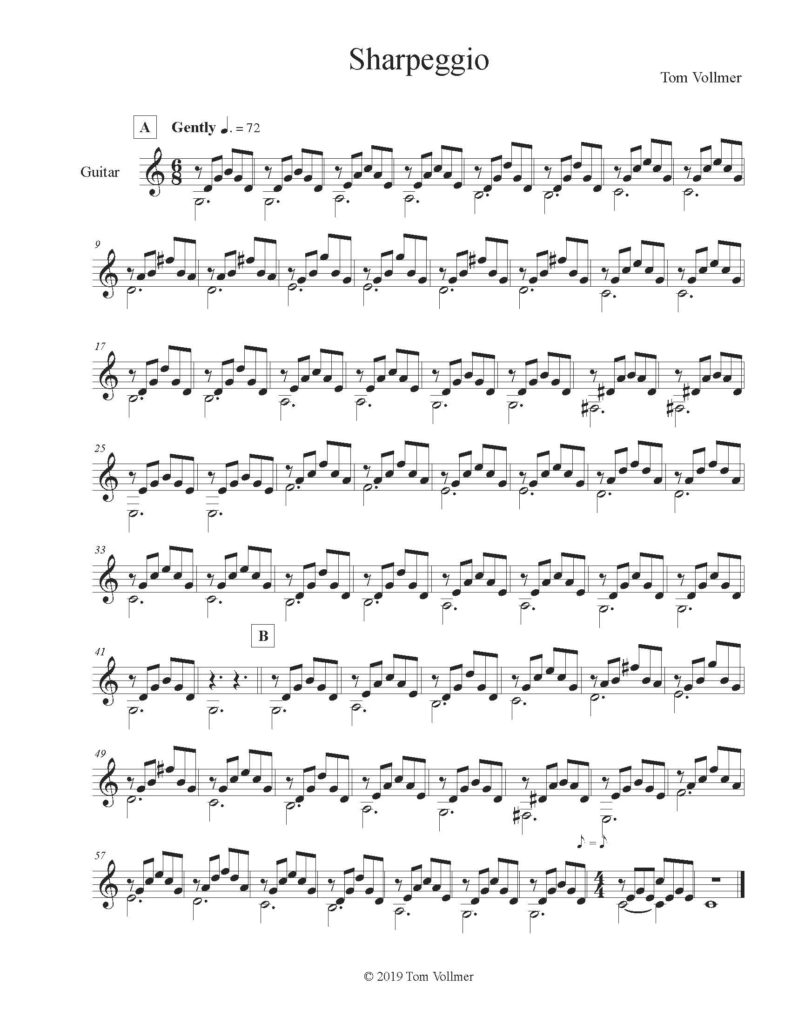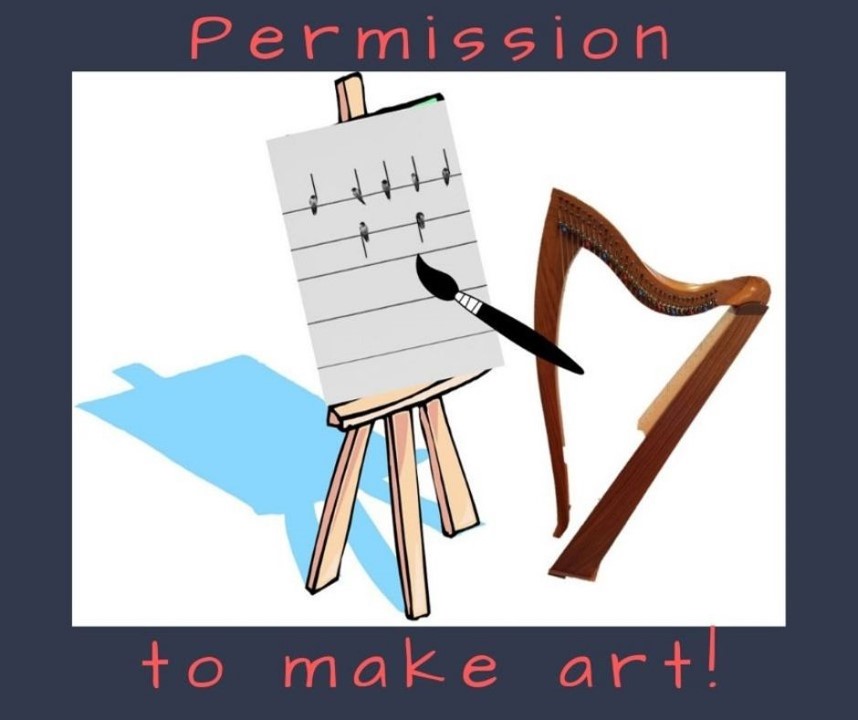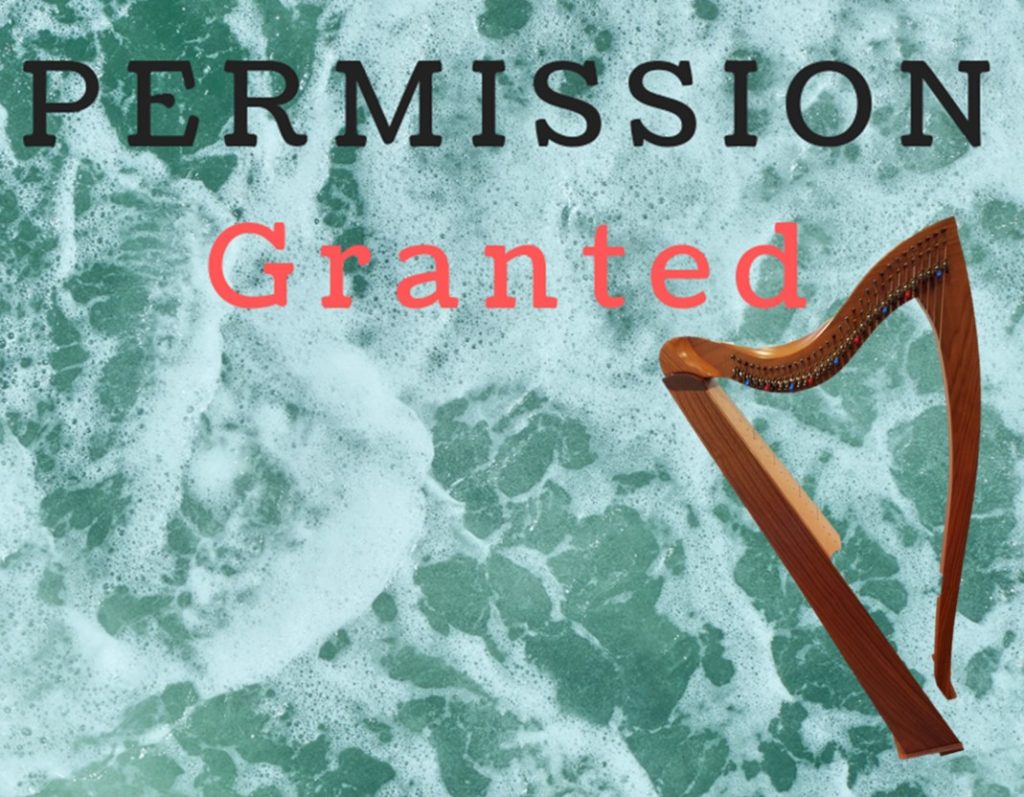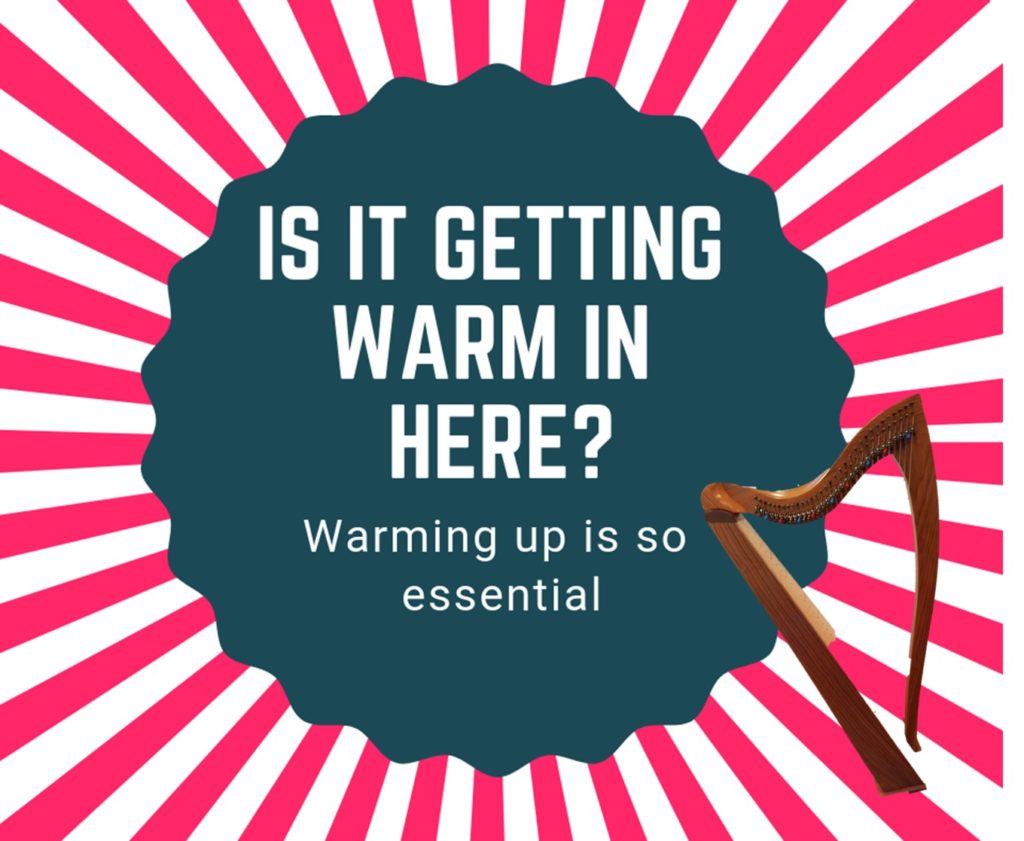One of my students recently broke her arm*. Really broke, with surgery and plates and screws, and other barbaric medical necessities. It was not pretty. She needed time to heal, and I encouraged her to take the time to recover so healing would go faster and more successfully.
And with good care and physical therapy (and more patience that I would have shown), she’s been on the mend. I’m delighted to have her back at the harp (with clearance from the physician and the physical therapist).
But, she’s a trooper and while she was recovering, she didn’t lay on the couch and moan! Nope – she plowed on!
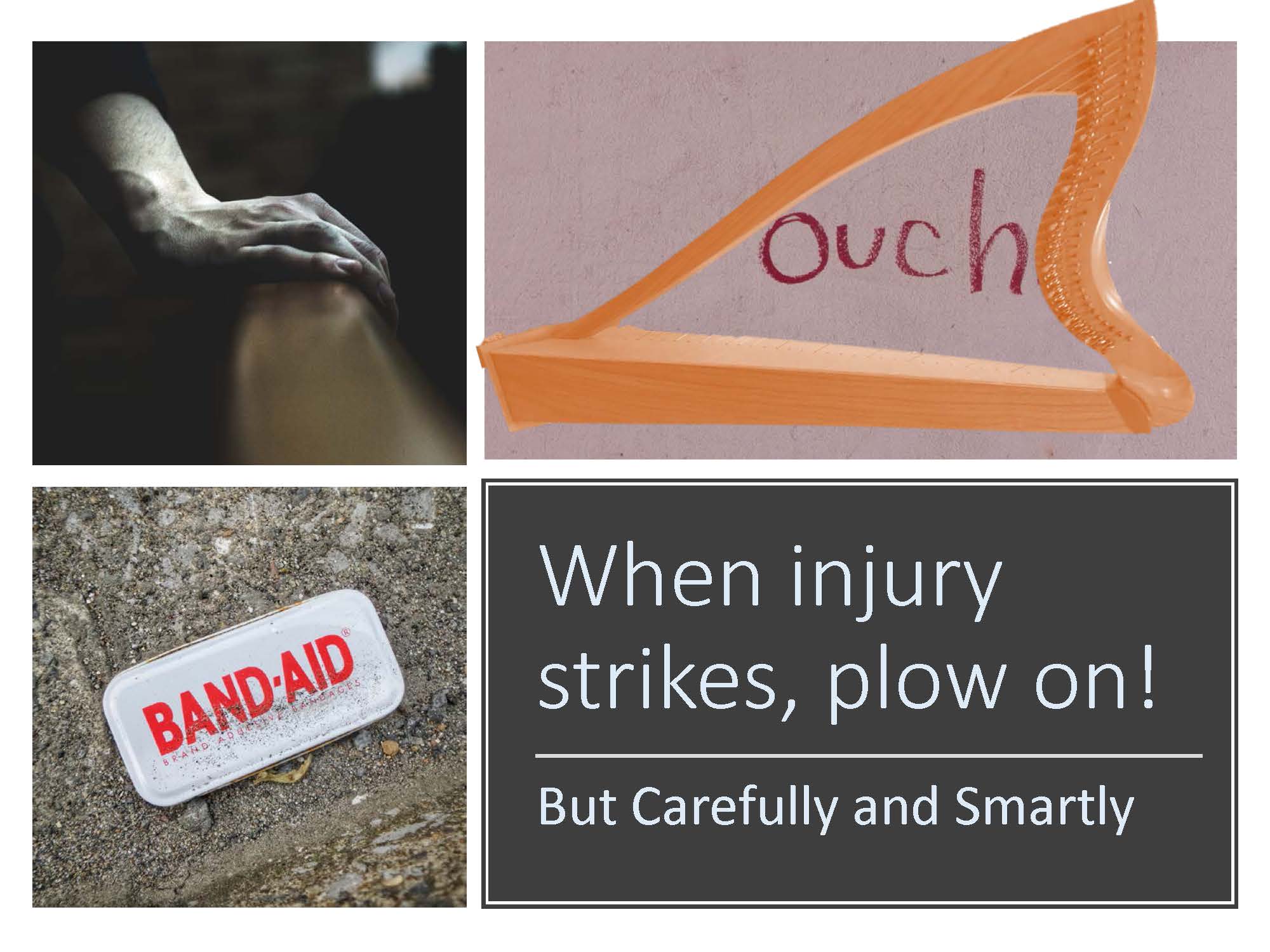 Now, let me explain what I mean by “plowed on”. What she did not do is ignore the physical therapist or the physicians. She did not just sit around. So, what did she do? She did the work she could do – carefully and smartly.
Now, let me explain what I mean by “plowed on”. What she did not do is ignore the physical therapist or the physicians. She did not just sit around. So, what did she do? She did the work she could do – carefully and smartly.
- She listened to music – because she knows this is a good way to perform mental practice. You may have heard the old saw, “if you can sing it, you can play it”. Listening to the tune helps you get the melody in your head, learning the patterns of the notes, the relationships of the phrases, so that you can anticipate what comes next – in your mind! So when she was healed up, she had a lot of the brain part of learning already done and she was ready to go on to the finger part.
- She did her physical therapy – She told the PT that she’s a musician so the therapy could be tailored to her needs. And she actually did the exercises her PT taught her – both during their sessions and as prescribed between those sessions. She knew that although the exercises were no fun, they were fun-damental to her recovering and being able to get back to playing sooner.
- She continued to play with the other hand. My students know that we will work to play the melody in both the right – and the left – hands. Sometimes we also ask the right hand to play the harmony. We do this both to exercise the left hand to make it more limber but also to make our brains more limber by switching the roles of the two hands. She was able to keep that up throughout her injury.
- She rearranged some tunes – when you can only play with one hand, you rethink your harmonization. This is an interesting exercise in inversions and it’s a good opportunity to think about the shape and structure of the tune. Earlier work on hand shapes also meant that she was comfortable building harmonies in one hand…and she knew these would help transition to two hands when the time was right.
- She thought before she played – asking so much from your hands really does mean that thinking first makes sense to save unnecessary movement and work. She analyzed the tune before playing to figure out how to accompany with harmony in just one hand.
- She thought after she played – gaining a new perspective from playing with one hand results in new possibilities to analyze your playing, the structure of your practice, and the outcomes.
- She rested – after all, your body needs time to recover so resting is certainly necessary for recovery. And practicing in a new way meant becoming more tired sooner.
- She was patient – she understood that this was a serious injury and that, not being a child, it would require time to heal and to knit back together.
Being injured is never fun and injuring yourself may impact your playing. But once it has happened, it is what it is – so take care of yourself while you heal – but don’t abandon your harp! At a minimum it might soothe your hurt to play what you can!
* like any good article, this is based on a fiction derived as a composite of students. But if you break an arm – I’d suggest you be smart – just like my composite student!
